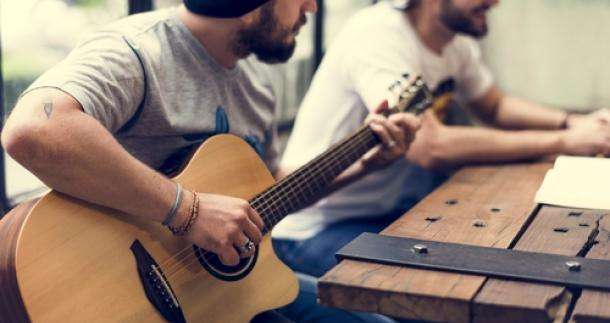Creativity has long been associated with drugs and alcohol. Writers are especially known to drink and musicians are especially known to use drugs. And drink. If creative pursuits are especially important to you, either professionally or recreationally, the belief that you need drugs or alcohol to be creative can be an impediment to recovery. Fortunately, drugs and alcohol are not at all necessary to be creative and they are often a hinderance. If you are a creative person, there’s no reason to worry about losing your edge in sobriety. Here’s why.
Correlation does not equal causation. Just because many artists, writers, and musicians use drugs and alcohol does not mean they are necessary or helpful. The creative life is often unconventional and not optimised for happiness or stability.
People who go into creative professions are often sensitive, intelligent, and bit eccentric. They may feel like social outcasts, or just generally dissatisfied with things that make most people happy. They may be more adventurous, and generally more willing to try drugs others would stay away from. Musicians and actors sometimes become addicted to drugs they use to cope with a demanding and chaotic work schedule, not because it makes their work better. There are many factors that may drive someone to be, say, a musician, and do drugs. Drugs may have nothing to do with music per se.
Good work is more about output than inspiration. People often link drugs and creativity because drugs change your perspective and allow you to see the world differently. The tacit assumption is that inspiration is paramount. If that is true, why isn’t every alcoholic a Hemingway? The answer is simple: most people don’t get up before dawn and write for three hours every day. All the inspiration in the world doesn’t matter if you don’t have the skills to make your ideas a reality. The best way to do that is consistent, deliberate practise. And the best way to do creative work is just to do a lot of work. Drugs and alcohol make consistency and practise much harder.
Change will happen either way. Everyone who engages in creative pursuits knows it’s not smooth sailing. Sometimes the wind is at your back, and sometimes you’re dead in the water. You just have to stick to your process though the doldrums. Getting sober will certainly affect your work in some way. People often feel numb or depressed early in recovery. They don’t enjoy the things they used to enjoy. That makes it hard to work consistently. Eventually, you will get past it and it you will have more experience to draw from. The alternative is that your addiction gets worse. At some point, your work will suffer anyway, so it might as well suffer in a way that will be positive in the long run.


